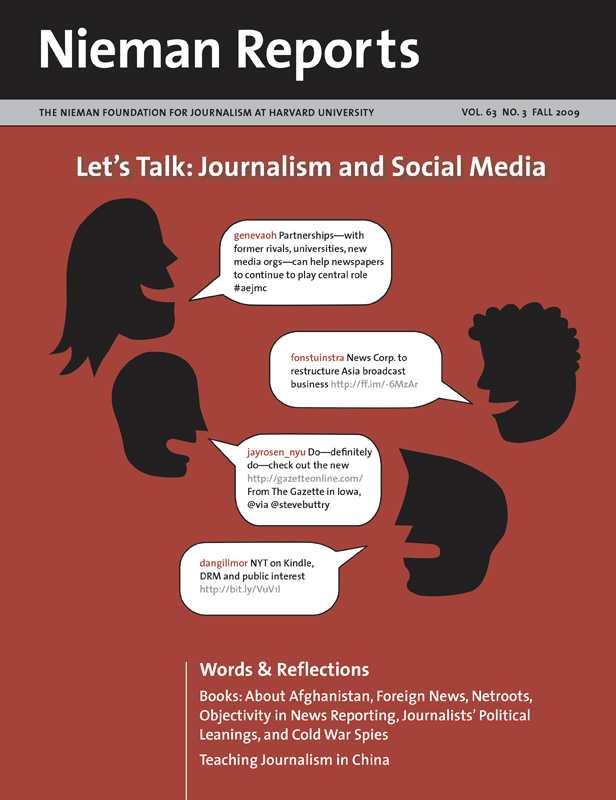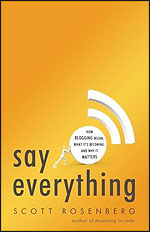
Scott Rosenberg’s book, “Say Everything: How Blogging Began, What It’s Becoming, and Why It Matters,” looks at the history of blogging and offers his opinions on what, after 10 years of existence, the medium can provide.
The book opens with the September 11th terrorist attacks on the World Trade Center, which sent countless bloggers in the city and across the country to their keyboards to chronicle the moment. Rosenberg credits these blogs with jumpstarting the modern blogosphere, as he writes in his introduction that “in September 2001, conventional wisdom held that Web content was ‘dead.’”
Web content was not, of course, dead, and Rosenberg uses the book to discuss the course it has taken since then and even dates the now-familiar organization of a blog (newest items on top, oldest on the bottom) to the Internet’s very first Web site. The book also focuses on a number of the influential players in the history of blogging.
Naturally, he also discusses the longstanding feud between these bloggers and the mainstream press, examining the ways that each has influenced the other and taking on the question of blogger vs. journalist by writing:
The answer has always seemed simple and obvious: writing a blog neither qualified nor disqualified you for the “journalist” label.
Blogging could be journalism anytime the person writing a blog chose to act like a journalist—recording and reacting to the events of the day, asking questions and seeking answers, checking facts and fixing errors. Similarly, journalists could become bloggers anytime they adopted the format of a blog as a vessel for their work.



